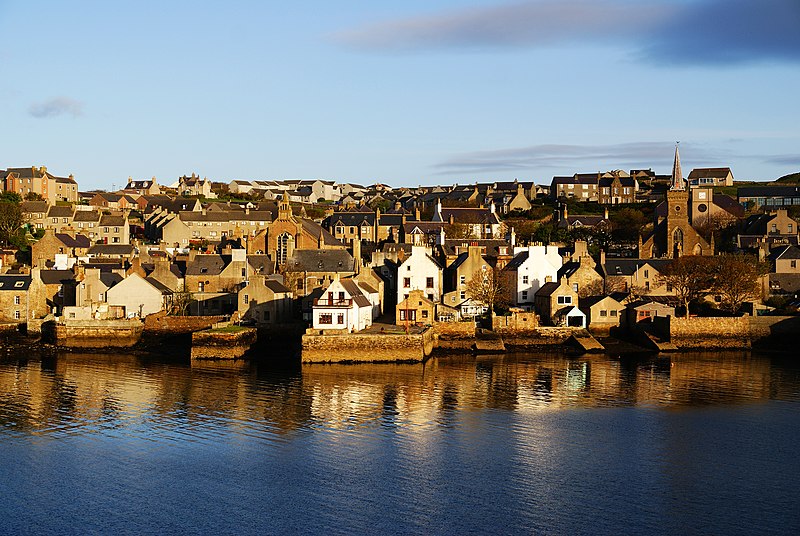
The Orkney Islands, an archipelago located approximately 10 miles off the north coast of Scotland, are contemplating "alternative forms of governance," which could potentially include
becoming part of Norway, according to the council leader, James Stockan.
With around 70 islands and a population of 22,000 people, Orkney has felt neglected by both the Scottish and British governments for years, prompting discussions about its future. Stockan believes that Orkney's historical Nordic connections provide viable options. The islands were under Norwegian rule for approximately 500 years until 1472, and many Orcadians express a desire to return to that country due to shared cultural affinity.
Stockan stated on BBC Radio, "At the moment, we're not getting that support coming through from other governments, and we would just like to see what other alternatives there are for us."
The funding dispute over new ferries connecting the islands with Scotland has brought Orkney's situation to the forefront. In response, Stockan has proposed a motion for the council to explore alternative models of governance that offer greater fiscal security and economic opportunities. Councillors will decide whether to support the motion on Tuesday.
Apart from rejoining Norway, other options being considered include exploring British arrangements like becoming a crown dependency, similar to the governance system in the Channel Islands, or adopting a model akin to the Faroe Islands, which is a self-governing part of Denmark.
In 2014, Scotland rejected independence from England in a referendum, leading Orkney to focus on strengthening its autonomy. Despite being a hub for processing North Sea oil since the late 1970s, the island has not seen substantial benefits. With new prospects emerging from offshore wind farms, Stockan aims to ensure that the islands receive a greater return.
Regarding the logistics of Orkney's potential return to Norway, which is approximately 250 miles across the North Sea, Stockan did not provide specific details. Norway's foreign ministry spokesperson stated that they had no comment on whether there had been any contact between the Orkney or UK authorities and Norway's government, emphasizing that it is a domestic and constitutional matter for the UK.
Stockan also mentioned the unresolved issue from 1469 concerning the dowry that Christian I, King of Denmark, Norway, and Sweden, failed to pay when his daughter married Scotland's James III, resulting in Orkney being gifted instead. However, the UK government's response to the question regarding Orkney's future did not address this dowry from 554 years ago.
A government spokesperson asserted, "We will always be stronger together as one United Kingdom." Photo by Geoff Wong, Wikimedia commons.



































